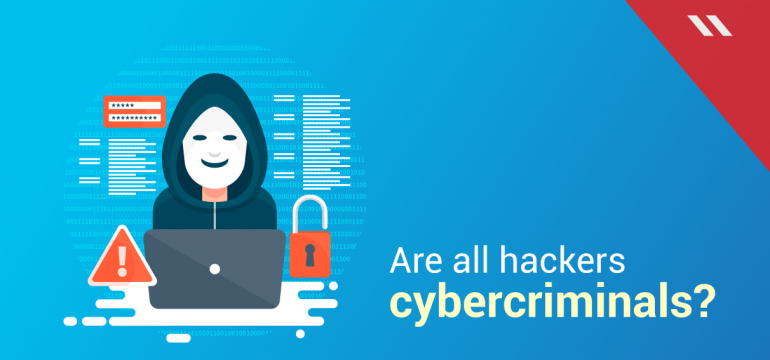Thanks to popular culture, the image of a hacker has often become stereotypical, which is ‘criminals using advanced cyber techniques to infiltrate enterprises or systems, with the intention to cause mayhem.’ It’s an image carefully cultivated by movies and books to the extent that many people may not be aware that there is actually more to the popular stereotype.
At its most basic, hacking is referred to as the bypassing of security measures to enter a computer device or network. The individuals who do this are called hackers — however, all hackers are not cybercriminals.
Sometimes, organizations may even reward hackers to infiltrate their systems.
Surprised? Read on as we add on to our previous blog on the same topic.
The White Hat hacker
The white-hat hacker is a form of an external audit used and even favoured by many organizations. Thanks to their specialized knowledge of breaking into systems, white hat hackers could well be intricately aware of the flaws present inside an enterprise’s cybersecurity posture, perhaps more so than even the security teams. Since white hat hackers do what they do for a living, they can spot vulnerabilities and loopholes in systems which may not be visible within the organization.
White hat hackers are employed by many different organizations across the world to test their security defences. Seqrite offers Red Team Assessments as a service, which are mock trials of how well an enterprise’s people, processes and technology hold up to cyberattacks which are conducted by highly trained security professionals who attempt to breach an organization. Red Team Assessments were recently recommended by the Reserve Bank of India (RBI), India’s central banking institution, who endorsed the use of such kind of assessments for financial institutions.
The major difference between white hat and black hat hackers are that the former enters an organization’s system with its full consent and knowledge. White hat hackers are not motivated by malice but with a genuine desire to help enterprises iron out its cybersecurity flaws.
The Black Hat hacker
The black hat hacker is the cybercriminal that enterprises worry about — like white hat hackers, they are professionals with an in-depth knowledge of how to identify loopholes in an organization’s cybersecurity framework and use these to penetrate & attack. Unlike white hat hackers, they aren’t motivated by any good intentions but by malice.
Black hat hackers are cybercriminals because they have malicious motives to attack businesses. The motives can vary from stealing confidential data and selling it on the black web or even just to create chaos within an organization. In many cases, even script kiddies who may not be experienced, try and use software to conduct hacking attacks or run Distributed Denial of Service (DDoS) attacks to bring an organization to its knees.
However, enterprises know that the key to dealing with black hat hackers is to maintain a powerful security solution which can plug gaps in vulnerabilities and call out suspicious user behaviour when it happens. Seqrite offers a range of security solutions for an enterprise assuring powerful protection against hackers and other threats. Whether it is endpoint security or providing an integrated threat management solution for the network, enterprises can depend on Seqrite for their cybersecurity protection.





No Comments